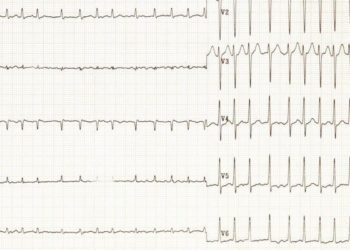Long work hours linked to greater “risky” alcohol use
1. Working longer hours >48 hours/week was associated with increased alcohol use compared to those working a standard 35-40 hours/week.
2. No differences were observed for any particular gender, age group, socioeconomic status, or geographical region.
Evidence Rating Level: 1 (Excellent)
Study Rundown: Alcohol use above recommended levels predisposes people to a number of adverse health consequences, including coronary heart disease, cancer, and liver disease. Work-related stresses, such as long working hours, can be a common cause of risky alcohol use, defined as 14 drinks/week for women and 21 drinks/week for men. The purpose of this study was to determine the association between long working hours and alcohol use. In a meta-analysis of cross-sectional and prospective studies, the prevalence of long working hours varied from 4.1% to 69.8% and the prevalence of risky alcohol use varied from 3.4% to 64.0%. The odds ratio of the association between long working hours and alcohol use was 1.11. In a prospective analysis of this association, those working >55 hours/week were 1.12 times more likely to engage in new onset risky alcohol use. Interestingly, this association was not stronger for any particular age or socioeconomic group, region, or level of risky drinking.
This study aimed to include a large number of studies in its meta-analysis in order to reach sufficient power to detect even weak and moderate associations, in contrast to prior studies on the same topic. The study was comprehensive in its approach as well, assessing alcohol use cross-sectionally and longitudinally and in various sociodemographic groups and regions. However, because of limited control of confounding factors, the strength of the association may be imprecise. Additionally, this study did not assess the sorts of preventive interventions that might be beneficial for those developing risky alcohol use. Overall, the study suggests that alcohol consumption is more likely to rise in those who work longer hours and brings to light an area potentially deserving of education and intervention.
Click to read the study in the BMJ
Click to read an accompanying editorial in the BMJ
Relevant Reading: Job strain and alcohol intake
In-Depth [meta-analysis]: This study quantified the association between long working hours and risky alcohol use by performing a meta-analysis of published studies. A total of 36 studies met inclusion criteria of which 34 were cross-sectional studies and 2 were prospective cohort studies. Of 333,693 people in cross-sectional studies, the overall pooled odds ratio of the association between long working hours and alcohol use was 1.11 (CI95% 1.05-1.18). Of 100,602 people in prospective studies, the adjusted pooled odds ratio for new onset risky alcohol use was 1.12 (CI95% 1.04-1.20) for those working >55 hours/week compared to those working standard 35-40 hour weeks. Furthermore, this association was not stronger for any particular gender, age group, geographic region, or socioeconomic group (all p>0.09 for heterogeneity).
More from this author: Pediatric reptile-associated salmonellosis a substantial burden, Colonic byproduct may decrease long-term weight gain, Men who pay for sex at higher risk of acquiring STIs, Milk consumption paradoxically linked to increased risk of fractures and mortality, Incidence of esophageal cancer subtypes vary drastically globally and by gender
Image: PD
©2015 2 Minute Medicine, Inc. All rights reserved. No works may be reproduced without expressed written consent from 2 Minute Medicine, Inc. No article should be construed as medical advice and is not intended as such by the authors, editors, staff or by 2 Minute Medicine, Inc.







